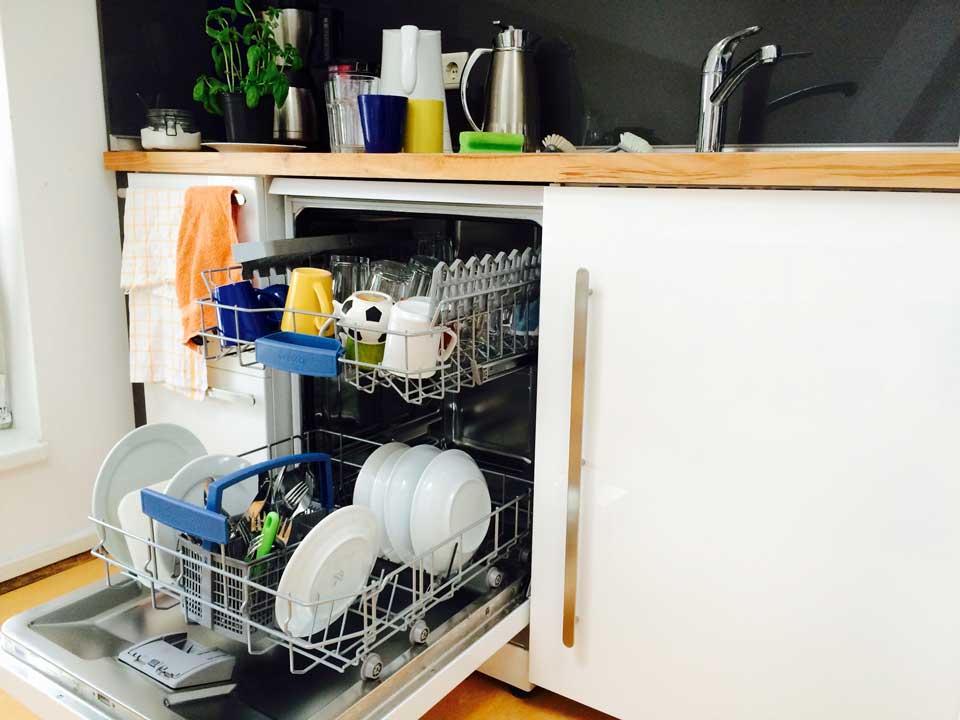
The dishwasher is actually the blessing of every household: the dirty dishes no longer pile up in the sink and nobody has to do the dishes.
Nevertheless, every now and then there are unnecessary disputes: What is allowed in the dishwasher? Why am I always the fool who has to empty the dishwasher? And anyway, how full does the dishwasher have to be so that I can turn it on and finally I can eat from my favorite plate again?
So here are answers to a few of these questions:
Good knives quickly become blunt in the dishwasher. In addition, hitting other cutlery or crockery sometimes creates unsightly scratches and dents. Therefore, it is best to simply wash the knives with water immediately after using them.
Cast iron pans have no place in the dishwasher. During the rinse cycle, the natural coating that develops over time is immediately destroyed. Therefore, you should not use detergent when cleaning such pans. Most of the time it is enough to wipe the pan with a paper towel after use. Otherwise, hot water will also help. To avoid rust, it is also important to dry the pan immediately.
Wood warps or splits in the dishwasher due to the high temperatures. Therefore, it is better to wash these items by hand. Or you can buy inexpensive products and replace them when in doubt.
Many Teflon pans and pots lose their magical non-stick properties pretty quickly once they're washed in the dishwasher on a regular basis. So better play the shit here and wash them by hand. Unless the manufacturer explicitly states that it is dishwasher safe.
Dishwashers love to eat away the gold rim. If your grandparents' dishes (or those of the grandparents of your roommates) are worth something to you, wash them by hand. # What can you put in the dishwasher
The question of whether you are allowed to turn on a half-full dishwasher presumably mainly depends on your personal price and ecological awareness as well as that of your co-residents. So here's the breakdown of what a wash cycle (using green electricity) costs:
So it costs between 49 cents and 66 cents to run the dishwasher once, an average of 57 cents.
References: